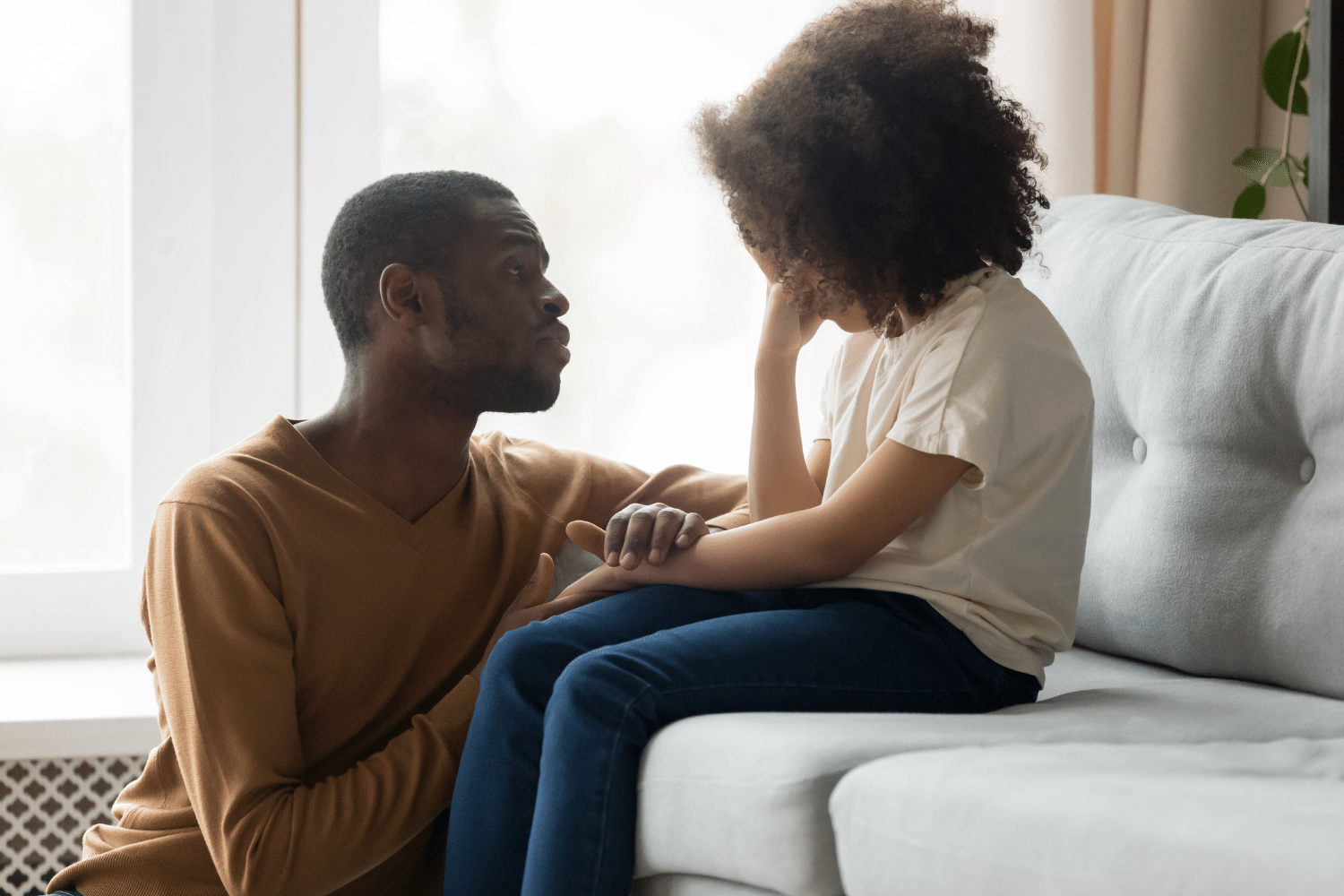Let’s talk about… Eating disorders

An eating disorder is a mental health condition in which the control of food is used to cope with feelings, emotions or situations.
There are many different types of eating disorders and they can affect people of all ages and backgrounds. The most common disorders are:
- Anorexia nervosa
- Bulimia
- Binge eating disorder (BED)
- Avoidant/restrictive food intake disorder (ARFID)
Eating disorders are most likely to affect teenagers, but they can and do affect younger children as well. Research suggests that cases of anorexia are rising amongst eight to twelve year olds.
What causes eating disorders?
Attitudes to eating can change with age, and people can go through phases of dieting or certain eating behaviours with no cause for concern.
Problems arise when controlling food is used to cope with emotions, feelings or stress. Some children may worry about their body image and look to control food as a coping mechanism.
Eating problems are commonly symptomatic of a deeper problem that needs to be identified and treated, such as stress or low self-esteem.
Warning signs of an eating disorder
Some signs of an eating disorder to look out for include:
- dramatic weight loss (it’s important to remember that not all young people with eating disorders will experience weight loss)
- lying about how much they’ve eaten, when they’ve eaten, or their weight
- eating a lot of food very fast
- going to the bathroom a lot after eating
- exercising a lot
- avoiding eating with others
- cutting food into small pieces or eating very slowly
- wearing loose or baggy clothes to hide their weight loss
What to do
If you’re concerned that your child or someone you know has an eating disorder, let them know you’re worried about them and book an appointment with a GP who can refer them to a specialist.
When bringing this up, make sure you:
- choose a place where you both feel safe and won’t be disturbed
- choose a time when neither of you feel angry or upset, avoiding before and after mealtimes
- use gentle language, avoiding anything that could feel accusatory
- centre the conversation around how they are feeling, opposed to food or weight
This can be difficult, as someone suffering from an eating disorder might not be aware of the problem themselves or may deny help. In anorexia, denial about the disorder is actually a symptom of the illness.
Read this guide from Beat Eating Disorders about helping a friend or family member.
You can also take a look at supportive videos on the Eva Musby YouTube channel.
Support is available if you’re worried about someone.
You can call the Beat Eating Disorders Helpline on 0808 801 0677 (open between 9am-8pm on weekdays, 4pm-8pm on weekends and bank holidays) or contact them via webchat.
You can also find local support services for eating disorders here.
If you’re in need of urgent help, for example if you or someone else is in immediate danger, call 999 or the Samaritans on 116 123.
Useful links
NHS – Eating disorders advice for parents
Young Minds – Parents guide to eating problems

